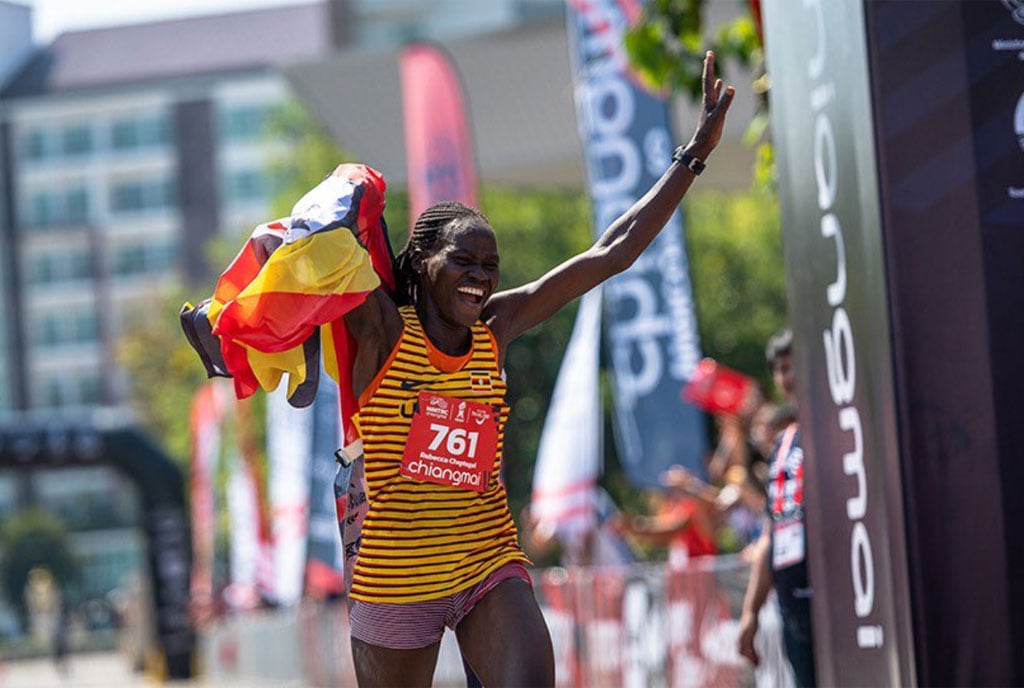Prime
How welfare project has changed lives in West Nile

Mr Wilfred Saka, the Terego chairperson, inspects cassava tuber displayed by a beneficiary during the closure of the SUPREME project at the weekend. Photo/Robert Elema.
What you need to know:
The project has boosted self-reliance among many refugees and the host communities.
About five years ago, Mr Moses Yeka, a South Sudanese refugee from Omugo Settlement in Terego District, depended mainly on the food ratio from the World Food Programme (WFP).
He says when they fled from South Sudan to the settlement, life became hard for his family since there was no means to earn a living coupled with the food cut.
Mr Yeka says the food ration they receive from the WFP could last for a few days and the family, including his three children, would sleep hungry.
Yeka, however, became self-reliant when he was selected to benefit from the Security, Protection and Economic Empowerment (SUPREME) Project under World Vision, with funding from the European Union two years ago.
“After my selection, I came up with a business plan of rearing poultry which was approved. I was given a cash grant of Shs4.5 million in October 2020 and I used the money to buy 300 chicks in the first batch,’’ he said.
“I kept the 300 chicks for one month and sold them but since the market was available, I continued bringing new chicks. From the period I started this poultry business up to now, I have sold more than 4,000 chicks that have earned me over Shs4 million,’’ he said.
He said the poultry business has helped him to address the issue of balanced diet and payment of school fees for his children.
Similarly, Mr Adam Asio, 47, a host community member from Gimara Sub-county in Obongi District started cassava production as a business four years ago. Mr Asio said he started the project with five acres of land.
‘’Following the selection, I chose cassava growing as an enterprise, wrote a proposal and submitted it for funding. In the proposal, I intended to have 10 acres of cassava and I received Shs7 million for the project,’’ he said.
He added: “I planted Narocas 1 cassava type in the 10 acres in the first season and harvested 68 bags, which earned me Shs18 million. Of the money, I invested the Shs10 million for the same project and I increased the acreages from 10 to 27 with the family members mainly providing the labour.’’
Of the Shs18 million from the sale of cassava, he used Shs8 million to diversify the project by opening another outlet of business of General Merchandise and this, he managed to raise Shs12 million.
Speaking during the closure of the project in Arua City last Friday, Mr Noel Alabi, the SUPREME consortium programme manager, said: “With the funding, we reached 27,372 direct refugee and host participants whom we organised in 1,000 savings and development clusters (SDCs), 2,034 youths who trained in vocational skills and engaged 50 private sector entities to deliver on market linkages,’’ he said.
The Terego chairperson, Mr Wilfred Saka, said: “Since the project has ended, the partners have left the beneficiaries in our hands. In case there are new projects, let the partners include tree planting as a component.”
The deputy refugee desk officer in the Office of the Prime Minister, Ms Jena Toma, said one of the issues that affected the project is the issue of acquisition of land.
“We need to come up with a clear strategy as far as acquisition of land is concerned. This will make us have more land for the refugees and we shall have excess production, which will boost resilience and self-reliance,’’ she said.
Beneficiary districts
The four-year project was implemented in the districts of Omugo, Obongi, Moyo and Madi Okollo
The project was funded by the European Union and consortium Partners with the total project budget of € 11.7million .




